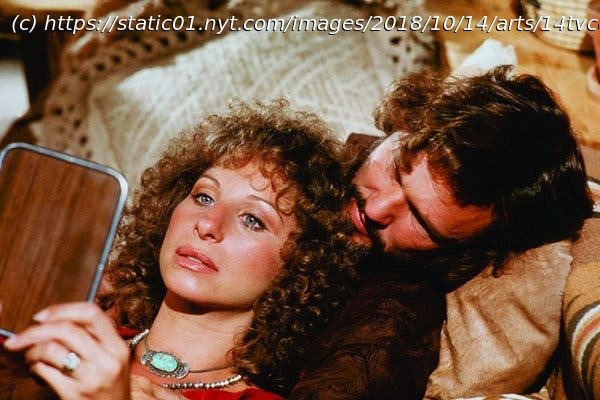The writer, working with her husband, John Gregory Dunne, saw Hollywood as a way to make cash to support her art. It did and didn’t work out.
“This place makes everyone a gambler,” Joan Didion sniped of Hollywood, nine years after she and her husband, John Gregory Dunne left Manhattan to make their fortunes as a screenwriting team. When the newlywed magazine writers rolled the dice on a career change in 1964, neither had even read a script, let alone written one. Luckily, one tipsy night in Beverly Hills, they spotted a TV actor hurling one at his girlfriend. They stole it, diagramed how its story was pieced together, and resolved that unlike that drunken louse — and unlike the drunks they admired, such as Dorothy Parker and F. Scott Fitzgerald, who had been jaded about the dream factory — they would never let Los Angeles make them lose their cool. How hard could Hollywood be? Didion had a steady gig as a film critic for Vogue, where she championed teeny-bopper beach flicks (“All plot is incidental; the point is the surf”) and panned “The Sound of Music” for being a musical, a genre she found insulting. (“Think you can get me with some fat Technicolor chrysanthemums, just think again.”) Meanwhile, Dunne’s clinical interest in the movie industry would soon result in his landmark nonfiction book, “The Studio,” which covered, among other things, how a 20th Century Fox publicist flogged the 1967 “Doctor Dolittle” in an awards race where it earned nine Oscar nominations despite middling reviews. Yet, Didion and Dunne’s get-rich scheme wasn’t as easy to pull off as they had hoped. In 25 years, the couple saw their names credited on the big screen just six times. Didion vowed to protect her heart from Hollywood. She never wagered more optimism than she could afford to lose. But screenwriting was supposed to afford her the freedom to write serious art, not waste her time on endless unpaid draft revisions. Worse still were the movies they didn’t write. Over repetitive lunches of white wine and broiled fish, producers pitched the pair a disco-era remake of “Rebel Without a Cause,” a reworking of Fitzgerald’s tragedy “Tender Is the Night” with a happy ending, a U.F.O. flick for the ’80s blockbuster titans Don Simpson and Jerry Bruckheimer, and this three-word brainstorm: “World War II.” “What do you want to do with it?” Dunne asked. “You’re the writers,” the producer replied. The irony is that the more the couple mocked Hollywood in essays, the higher their script fees rose. Slamming the businessmen in suits could have made Didion and Dunne personae non grata at the Polo Lounge. Instead, cynicism made them look savvy. Here were two smart people who knew exactly what they’d signed up for. They got it, or as Dunne joked, “I have never been quite clear what Going Hollywood meant exactly, except that as a unique selling proposition, it’s a lot sexier than Going University of Iowa Writers’ Workshop.” It’s hard to argue that Didion and Dunne’s films are palpably them any more than one can touch an actor onscreen as he coils his tongue around Didion’s diction.






